
The U.N.’s $300 Billion Climate Deal: Progress and Controversy at COP29
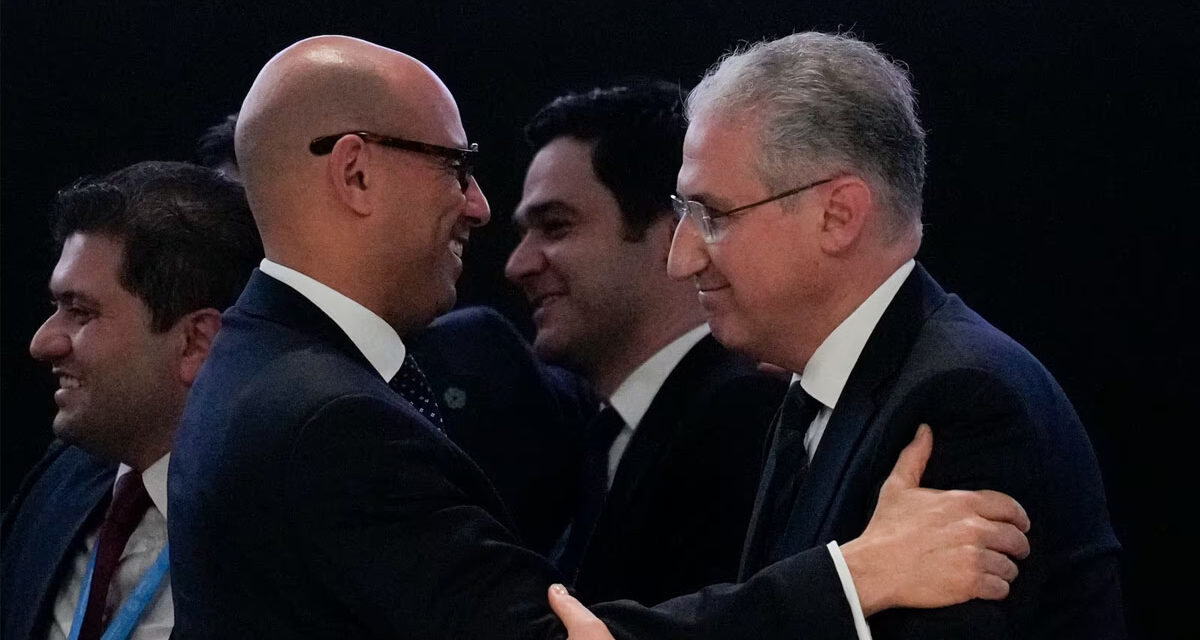
The United Nations climate summit in Baku, Azerbaijan, concluded with an agreement that seeks to inject $300 billion annually into the global fight against climate change. This funding is intended to assist developing nations in transitioning to clean energy, adapting to climate impacts, and addressing the mounting damage caused by extreme weather events. While the deal has been hailed as a step forward, it has also drawn criticism for falling short of the financial support many nations deem necessary.
The agreement has sparked a mix of hope and frustration, underscoring the complexities of international climate negotiations.
A Framework for Funding
The $300 billion climate financing deal, set to triple previous commitments, builds on earlier agreements made at the 2009 Copenhagen summit. Under the new deal, developed countries—including the United States, European Union members, and other historically high emitters—pledged to significantly increase their financial contributions by 2035.
The $300 billion annual target is expected to be sourced from a combination of public and private financing. Developed nations are tasked with leading the contributions through their government budgets, but the agreement also emphasizes the role of private sector investments and multilateral development banks in reaching the goal. Additionally, the deal introduces the idea of “alternative sources,” which include potential global taxes on industries such as aviation and maritime shipping. The hope is that these diverse funding streams will not only meet the immediate $300 billion target but also pave the way for the larger $1.3 trillion goal envisioned for the next decade. However, concerns remain about whether these sources will be sufficient and whether funds provided as loans could further burden already indebted nations.
European Union Climate Commissioner Wopke Hoekstra expressed optimism, stating, “With these funds and with this structure, we are confident we will reach the $1.3 trillion objective.” However, this larger goal is not yet guaranteed, relying heavily on private sector contributions and multilateral development banks to supplement government financing.
While the $300 billion commitment marks a significant increase from the $100 billion pledged in 2009, it remains well below the $1.3 trillion annually that experts and developing nations argue is necessary by the next decade.
A Polarized Response
Despite the agreement, tensions ran high at COP29, with many developing nations expressing frustration over what they perceived as inadequate funding and unfair negotiation processes. India’s delegate, Chandni Raina, criticized the agreement in stark terms, calling it a “paltry sum” that does not meet the urgent needs of vulnerable nations. “It’s too little, it’s too distant. It is 2035, too far gone,” she remarked, highlighting the disappointment felt by many developing countries.
Others echoed these sentiments. Nigeria’s Nkiruka Maduekwe described the deal as “an insult and a joke,” while Juan Carlos Monterrey of Panama noted that although minor improvements were made in the final hours—such as adding the phrase “at least” before the $300 billion target—the agreement ultimately failed to inspire confidence. “Our heart goes out to all those nations that feel like they were walked over,” Monterrey said.
Criticism was not limited to the funding amount. Many delegates were angered by the way the agreement was pushed through. Mukhtar Babayev, the COP29 President, gaveled the deal into acceptance before some nations had the opportunity to speak. This procedural move sparked outrage, with Raina accusing the process of being “unfair” and “extremely hurtful.”
The Bigger Picture
Despite the ambitious-sounding numbers, the $300 billion deal is only a fraction of the funds required to address the goals fo the U.N. Experts estimate that the total cost of adapting to climate change and transitioning to green energy in developing nations will reach trillions of dollars annually by 2030. As it stands, the $300 billion commitment barely scratches the surface of these monumental financial demands.
Adding to the complexity, developed nations have historically struggled to meet even smaller funding commitments. A $100 billion annual climate financing goal set in 2009 was only achieved in 2022, two years behind schedule. This history raises doubts about the feasibility of the new, much larger target.
Political uncertainty in donor countries further complicates the situation. In the United States, the incoming Trump administration has signaled plans to cut climate financing and withdraw from the Paris Agreement. Elon Musk, tasked with overseeing federal spending cuts under Trump, has already called climate-related jobs in federal agencies “fake jobs.” Such rhetoric casts a shadow over the U.S.’s ability to fulfill its commitments, potentially leaving Europe and other developed nations to fill the funding gap.
Divisions Over Responsibility
One of the most contentious aspects of the negotiations was the question of who should bear the financial burden of climate change. Wealthy nations have pushed for higher-income developing countries—such as China and Saudi Arabia—to contribute to climate financing. While these countries are classified as “developing” under U.N. treaties, their economic growth and rising greenhouse gas emissions have led to calls for a reevaluation of their responsibilities.
China, now the world’s largest emitter of carbon dioxide, has resisted such changes, emphasizing that it already provides bilateral aid to poorer nations. China has already committed to building over 100 new coal fired generating plants. Since 2016, China has contributed $25 billion to green energy projects in other developing countries. The final agreement reflects a compromise, encouraging—but not requiring—wealthier developing nations to make voluntary contributions.
This issue has further divided the developing bloc, with smaller nations like those in the Alliance of Small Island States demanding more immediate and substantial support. Evans Davie Njewa of Malawi noted that while his country supported the agreement, it did so with reservations, reflecting the broader dissatisfaction among the most vulnerable nations.
Missing Commitments on Fossil Fuels
Another major disappointment for climate advocates was the absence of explicit language calling for a transition away from fossil fuels. At last year’s COP28 in Dubai, nations had agreed to such a transition, but this commitment was notably missing from the Baku agreement. Instead, the final text included only a vague reference to the Dubai deal, which many see as a concession to oil-producing countries like Saudi Arabia.
Tamara Gilbertson of the Indigenous Environmental Network criticized the deal for undermining efforts to limit warming to 1.5 degrees Celsius, calling it a “climate scam” riddled with loopholes. This omission has left activists and negotiators questioning the seriousness of global commitments to reduce emissions.
While the $300 billion climate financing deal represents progress, it also highlights the vast challenges that remain. U.N. Secretary-General António Guterres acknowledged the shortcomings of the agreement, stating that it “provides a base on which to build” but expressing hope for a “more ambitious outcome” in the future.
Attention now turns to COP30 in Brazil, where negotiators will have another opportunity to address unresolved issues, including the scale of funding and the transition away from fossil fuels. For now, the Baku agreement is a reminder of both the strides made and the obstacles that lie ahead in the fight against climate change.
The question remains: Will the world’s wealthiest nations step up to meet the urgency of the climate crisis, or will vulnerable nations continue to bear the brunt of inaction?
Editor’s Notes: Clearly the U.N. is attempting to shame the U.S. into funding a great deal of this, but they are not prepared to deal with Trump. The timing is such that Biden’s Ambassador to the U.N., Linda Thomas-Greenfield, would not fight this. We have noted before that subsidies are keeping renewable energy artificially high, so this funding may end up doing more harm than good.
















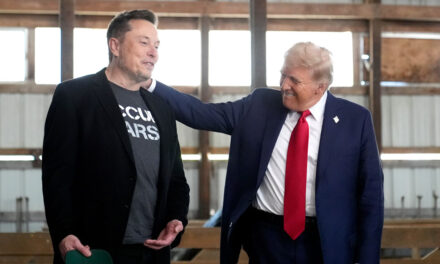




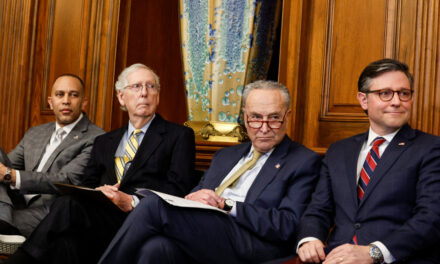


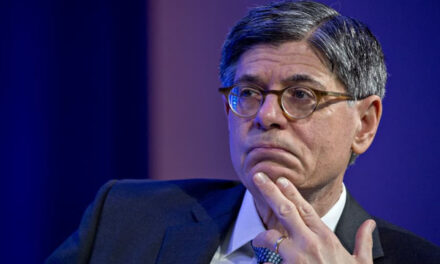


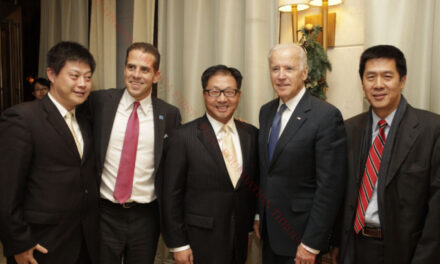
Who cares?
We’re pulling out in two months anyway.
We don’t need no stinkin climate deal. It’s our climate, we can do what we want. Our planet is God’s creation, we can piss where we want. Our climate, God’s planet, WTF do we need COP29 for?
The picture at the top tells you all you need about climate change promoters. Two guys smiling saying, “Yep, we will continue to live large with all the world’s taxpayers funding our stupid “studies” and paying for us to fly our Gulfstream G5’s anywhere we want any time we want. Just remember to change the subject whenever anyone asks for proof that gasoline powered cars and natural gas generators are causing the earth’s temp to rise, even though the temperature has been rising for 20,000 years before we had any industry!”
Oh, and don’t anyone ask what $300 Billion a year could do to help the world’s poverty-stricken people whose numbers are increasing every day, because their jobs are lost to “saving the planet.”
Financed thru “public and private financing?” What a lie. Government has no money other than what it takes from working people as taxes. Why don’t they say, “We’ll just take more from working people to pay for this fake climate change…because it keeps us in a life of luxury without having real jobs!”
Yes, the planet is getting hotter every decade. When will people realize NOTHING WE DO will
make a difference!
The Grand Canyon was cut from an Ice Berg! Where did it go?
Did the people driving 5 million years ago cause this change?
Our actions can change air quality in certain places, I will go with that.
But people thinking ANYTHING we do causes the Planet to get warmer
are simply fools!
WillyB46, you are right on the MONEY my friend!
I had a horse once, like you gents, she shat where she ate. Disgusting. Always had to muck it out. The other horses I had in my life instinctively knew to walk outside, the door was always open. One was so smart she shat in the corners of the field so she could navigate after her eyes stared going.
Boys, tell me, when is it better to pollute more than to pollute less?
How greedy are you that you shit where you eat for fun and profit?
Your experience with economics needs work. “Oh, and don’t anyone ask what $300 Billion a year could do to help the world’s poverty-stricken people whose numbers are increasing every day, because their jobs are lost to “saving the planet.” Uh,,,,,,, where do you think that $300B goes? To buying things and paying people. Just like if you use it to buy food and pay people to distribute to the poor. The difference is with your approach, after you spend it, you still have all those poor people. After I spend it, you have a cleaner planet that has to be more profitable to the economy than the shit pile you seem pleased to create and expand.
Gulfstream’s? Boy’s got some envy on…. Should have gone to school and then you could fly big time too. Worthless studies? Yeah, let’s fund Project 2025 studies instead. Or how to mass deport 11-plus million people. Oh wait, we don’t need no stinkin study, just rounde em up, pen em up, and ship em away. Like cattle, get em up little doggies.
Dudes, the fact remains and you cannot dispute: polluting less is better than polluting more. God says so.
And I brought you into a plentiful land to enjoy its fruits and its good things. But when you came in, you defiled my land and made my heritage an abomination.
Lift up your eyes to the bare heights, and see! Where have you not been ravished? By the waysides you have sat awaiting lovers like an Arab in the wilderness. You have polluted the land with your vile whoredom.
You shall not defile the land in which you live, in the midst of which I dwell, for I the Lord dwell in the midst of the people of Israel.”
By offering polluted food upon my altar. But you say, ‘How have we polluted you?’ By saying that the Lord’s table may be despised.
“The earth mourns and withers…it is polluted by its inhabitants, for they transgressed laws, violated statutes, broke the everlasting covenant. Therefore, a curse devours the earth, and those who live in it are held guilty”
Yes, it is always better to pollute less and worse to pollute more.